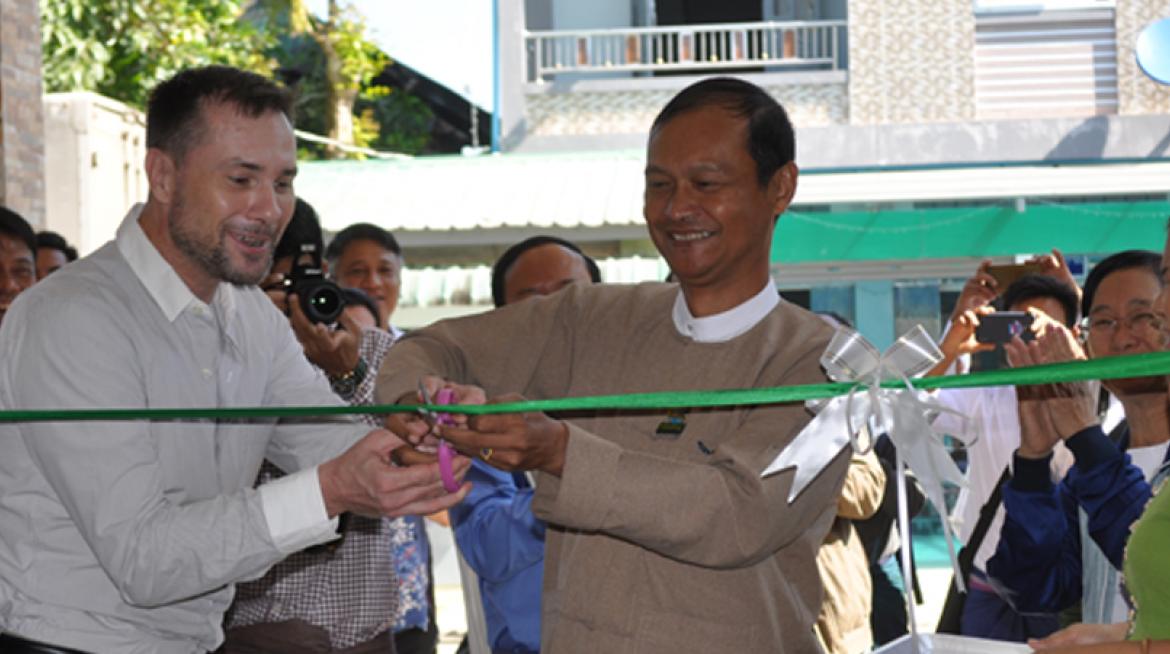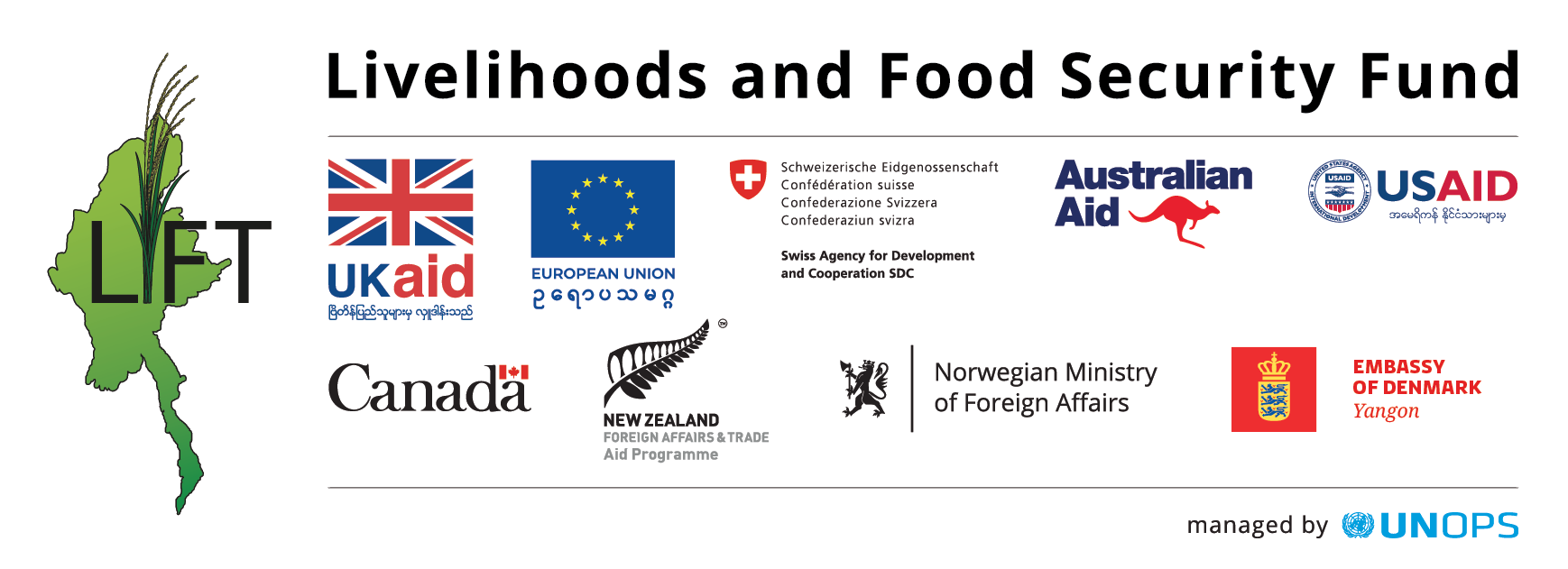
Improving the supply of quality, certified rice seed available to farmers in the Ayeyarwady Delta is crucial to improving rice yields.
About 25 per cent of Myanmar’s rice acreage is in the Ayeyarwady Delta, but there is a lack of quality resources available to stakeholders in rice production. The most significant gap is the lack of quality rice seeds that are well-adapted to the growing environment. Only one in 20 farmers in the lower Delta use certified quality rice seeds. Good quality seed can boost yields by more than half.
A study funded by LIFT and conducted by Wageningen University & Research (WUR) in 2017 identified challenges for rice seed providers in the Delta that included lack of capacity for quality rice seed production and certification, fragmentation in the sector and limited collaboration within the rice seed value chain. There is a large informal seed system operating in the Delta where seeds are exchanged with family, friends, and neighbours; but this does not result in quality seed being used. The study recommended that developing a formal seed system to improve farmers’ access to quality seed was required to boost yields and improve rice production in this important rice growing region of Myanmar.
The study recommended that support for the development of the rice seed sector in the Delta was required, and in response LIFT decided to fund a project to support the sector’s development. A call for proposals was issued and in October 2017 a consortium of the Department of Agriculture (DOA), WUR, and Welthungerhilfe (WHH) was selected to implement the Support to the Rice Seed Sector Development in the Ayeyarwady Delta project.
The project is designed to strengthen the formal private and public seed system to improve farmers’ access to quality seed. The project will increase the capacity of government seed farms to produce early generation seed, upgrade laboratories to provide quality assurance and seed certification to international standards and incentivise the private sector to engage in seed production.
A ceremony was held in Pathein to formally launch the project in January 2018. The launch was attended by more than 50 people representing government, the private sector, development agencies, famers and INGOs and NGOs working on agriculture development in the Delta.
WHH’s Country Director Mike Bratzke and the Department of Agriculture’s Deputy Director U Htay Lwin cut the ribbon together at the ceremony to formally launch the project.
“The commitment of all partners to pull on the same rope is what makes this project successful”, Mr Bratzke said. “The creative and innovative aspect of this project is the constellation of partners that work together along the value chain. When we collaborate, we can establish a nutritious food supply for the communities here in the Delta”.

U Htay Lwin said the large turnout of stakeholders at the event demonstrated the eagerness of stakeholders in the sector to develop quality seed to boost rice production.
“The Delta offers many resources for rice production, but for all stakeholders to access them, cooperation among them is essential. We as the government play an important role by providing rules and regulations and selecting seed growers that can follow the legal framework to assure quality.”
The government also provides and coordinates extension support to seed growers, U Htay Lwin said. “This will lead to increased productivity of quality rice, for which the rice millers will pay a higher price to the farmers”.
The Rice Seed Supply and Demand System in the Ayeyarwady Delta, Myanmar conducted by WUR was crucial for identifying the constraints when it comes to capacities, access and collaboration, and WUR is part of the new project’s consortium. WUR was represented at the launch by Marja Thijssen, Abishkar Subedi, and Arnab Gupta who explained that seed growers needed training and equipment to produce new varieties to assure quality standards and an investment fund being created would help them to upgrade their farm infrastructure and then adopt new practices.
“Following the right techniques is important to get quality varieties that are well-adapted. This means using the right equipment or removing varieties that are failing in time. It also means that the capacities of inspectors need to improve, to make sure that the quality of the certification remains valid”, WUR’s seed sector advisor Arnab Gupta said.
The direct beneficiaries of this project are the rice farmers who adopt the new varieties and boost their productivity. Their voices and feedback are important to make sure the project is inclusive. WHH Project Coordinator Lukas Frohofer explained how this is achieved.
“Coordination means that everyone’s voice is allowed to be heard, but also to make sure people listen. Through our good relationships with the local community, we will make sure that farmer representatives are present at sector platform meetings that are held before each season”, Mr Frohofer said.
The project runs until June 2019.




